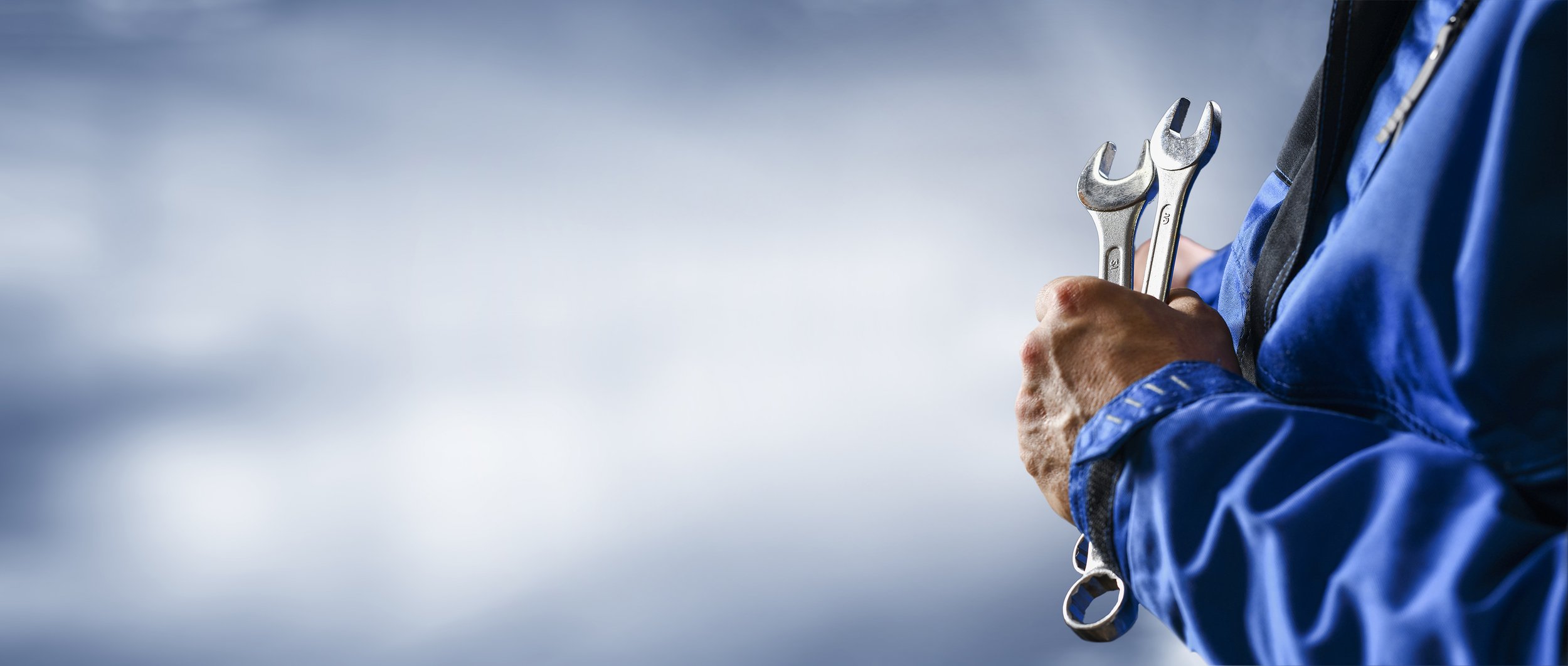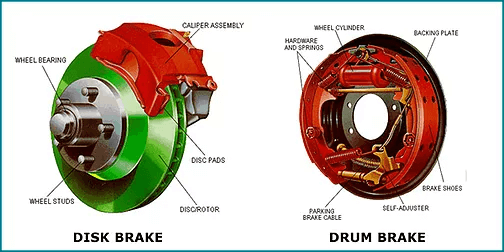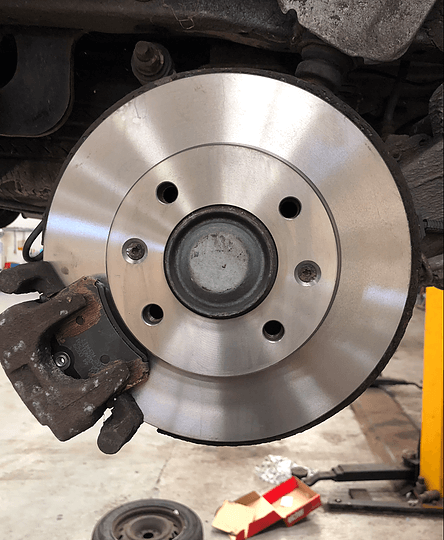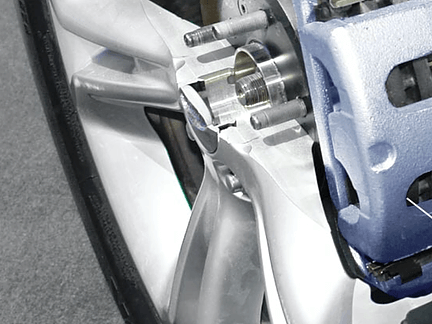
Brake Repairs & Replacements
Enter your vehicle registration for an instant price.
Car Brake Repairs and Replacements Eastbourne
The bodywork styling, interior comfort, electronic gadgets, and powerful engines are what most people look at as important when they see a car. However, it goes without saying that the brakes on a car are the most important item. No matter how good, or sexy, the car is, you must be able to stop the vehicle safely and reliably. Every time.
They stop the car, Right? Wrong! The friction of the tires against the road surface is the force that slows down and stops a car – the brakes actually stop the wheels from turning and create that friction.
Every car has one of two braking mechanisms, front and rear, and consists of 5 components:
Brake discs (or drums)
Calipers (or cylinders)
Brake pads (or shoes)
Brake lines
Brake master cylinder
Older models are usually equipped with drum brakes. Vehicles made after 1970 invariably have disc brakes. Some have discs at the front and drums at the rear wheels.
Both types are operated by the pressure of your foot pressing on the brake pedal which activates the master cylinder to force hydraulic fluid to travel, under pressure, through the brake lines to a piston which is housed in the caliper.
This piston is forced to push the brake pads against the brake disc or brake shoe against the drums to create friction, which slows and stops the wheels from turning
Most brake systems have power assistance that helps increase the action of your foot on the brake pedal, reducing the braking effort.
Brakes are a consumable item and will wear over time and with mileage covered. As such, they need to be regularly and properly maintained. The components of the brake system consist of a brake caliper, which houses the brake pads, which press against the brake discs. Taking care of your brake system includes replacement brake pads and discs when needed. It is also important that brake discs are inspected for wear and damage and that the master cylinder is filled with the correct type and level of hydraulic brake fluid.
Brake Pads
Rotating metal discs slow and stop the vehicle when brake pad contact is created by pushing on the pedal. Discs are also a consumable item and will wear over time. Discs can develop grooves, scores, slipping, or warping which can be caused by brake pads that have worn away the friction material which allows the metal casing to press directly against the metal disc surface when making contact and will need to be replaced often.
Below is a real life before and after example of a vehicle we had in the workshop recently.
Brake pads before
Brake pads after
The brake caliper
The brake caliper is a hydraulic clamp that uses a piston
(or often multiple pistons) to squeeze the brake pads against the disc to slow the vehicle. Generally speaking, the more pistons in a caliper, the more evenly the pressure on the pads are spread onto the brake disc, which is why high-performance cars have multiple-piston brake calipers. If not properly maintained, brake calipers can seize and stop working. Signs of this include brake binding, vibrations or pulsing felt through the pedal, a pulling to one side when applying the brakes, reduced braking force, or a spongy feel or to the brake pedal or grinding sound when braking. Fluid leaking from the caliper and longer stopping distances are also warning signs.
Drum Brakes
Drum Brakes are comprised of a drum & backing plate, a hub or axle assembly, brake shoes , wheel cylinder, wheel bearings and hardware necessary to mount these components on the vehicle. The wheel cylinder is connected to the master cylinder through tubes, hoses and valves that conduct brake fluid through the system.
Change Your Fluid
Braking systems use a hydraulic system in which brake fluid is forced under pressure by the pressing of the brake pedal. Fresh brake fluid is something few people think about, even though it can dramatically affect braking performance. Brake fluid is hygroscopic, meaning it attracts moisture. This is bad for several reasons:
Moisture in the brake fluid reduces its boiling point, which makes it easier for the fluid to boil under heavy braking.
Boiling brake fluid can cause brake fade when driving along roads that require a lot of braking, country lanes, or long downhill gradients for example, especially with a heavy load or while towing a trailer.
Moisture also acts to corrode metal components within the braking system, possibly causing an eventual failure.
Brake fluid will naturally degrade over time Foreign materials, air, or moisture can get into the sensitive braking system which can degrade and damage its components. Regular servicing avoids potential problems. Most vehicles have a reservoir that enables a brake fluid level check without having to open the cap. The markings on the side indicate whether brake fluid needs to be added. It may be necessary to clean road dirt from the reservoir in order to be able to read the levels properly. Fortunately, the solution is easy. Brake fluid should be changed on the service interval recommended by your vehicle's manufacturer, or around every two years or so.
Heat!
Now we have a basic understanding of how a braking system works, we can also understand what can cause problems in the system. Heat is the No. 1 enemy of efficient and safe braking.
As the brake pads press against the brake disc, a huge amount of heat is created. To remove and dissipate this heat, particularly from the heavily loaded front brakes, the disc is often ventilated with internal grooves or drilled holes that work to move cooling air from the center of the disc to the outer edges. By channeling hot air away from the discs, the brakes remain cooler and less prone to brake fade.
Brake fade occurs when the brakes are overused and therefore overheat. In some cases, the brake fluid can actually boil in the calipers, causing a complete loss of braking ability.
When brakes fade:
The pedal depresses farther, closer to the floor.
The pedal sometimes goes all of the ways to the floor without any braking action occurring, in the case of badly faded brakes.
The distances it takes to stop increase dramatically.
The brakes emit a burning smell.
In the most extreme cases, the brakes can actually smoke or catch on fire.
When brake fade happens, the only thing you can do is pull over and allow your brakes to cool.
The good news is that with regular maintenance your brakes should perform safely, reliably, and go almost unnoticed. Maybe that's why the rest of the car gets all of the glamour.








